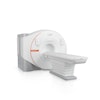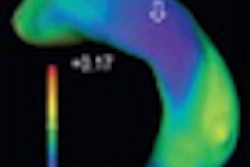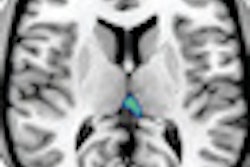Thursday, December 2 | 11:40 a.m.-11:50 a.m. | SSQ13-08 | Room N229
Advanced MRI techniques, such as perfusion-weighted imaging (PWI) and diffusion-tensor imaging (DTI), may be useful in diagnosing dementia, according to a study from Wroclaw Medical University in Poland.Lead study author Marek Sasiadek, MD, said the findings mean perfusion-weighted imaging and diffusion-tensor imaging of the posterior cingulate region someday may replace FDG-PET in diagnosing Alzheimer's disease and mild cognitive impairment, though additional research is needed.
The study reviewed 20 patients with Alzheimer's disease (mean age, 72.5 years), 15 patients with mild cognitive impairment (mean age, 63.2 years), and 15 healthy subjects (mean age, 69 years).
All 50 subjects underwent MRI examinations, including perfusion-weighted imaging and diffusion-tensor imaging on a 1.5-tesla MRI scanner to measure relative cerebral blood volume and fractional anisotropy, respectively. Alzheimer's and mild cognitive impairment patients also were given FDG-PET studies.
The researchers also used software to determine the rates of glucose metabolism as z-scores. The z-scores were calculated based on the mean value of aged-matched healthy controls minus mean value of the patient subgroup divided by mean standard deviation of the healthy controls. The results of relative cerebral blood volume and fractional anisotropy from the posterior cingulate region also were assessed as z-scores and compared with the results of PET studies.
The analysis revealed that FDG-PET and PWI exams showed very similar values of z-scores for both Alzheimer's (1.69 for FDG-PET and 1.9 for PWI) and mild cognitive impairment (0.76 for FDG-PET and 0.7 for PWI) patients.
The researchers also found significantly higher z-scores for fractional anisotropy measurements in DTI (2.6 for Alzheimer's and 1.48 for mild cognitive impairment) compared to FDG-PET.
"The results of this research show high accuracy of the perfusion-weighted imaging and especially diffusion-tensor imaging of the posterior cingulate region in Alzheimer's disease and mild cognitive impairment," Sasiadek said. "Perfusion-weighted imaging and diffusion-tensor imaging seem to have similar or higher value, respectively, in comparison to FDG-PET. Thus, perfusion-weighted imaging and diffusion-tensor imaging may replace FDG-PET, which is much more expensive and much less available, in diagnostics of Alzheimer's disease and mild cognitive impairment."




















